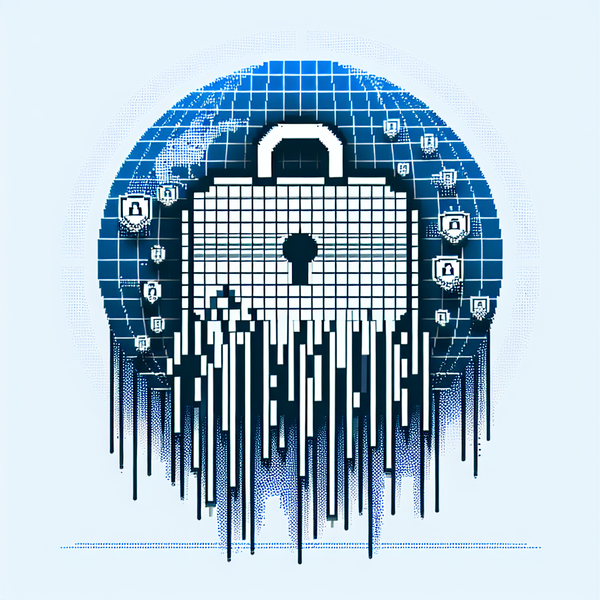Secret CISO 8/18: DaVita & AT&T Breaches, 5G Attack, Pro-Russian Hackers Target Norway Dam - A Global Cybersecurity Wake-Up Call

Welcome to today's edition of Secret CISO, where we unravel the intricate web of cybersecurity threats and defenses. In a world where data is the new currency, today's stories paint a vivid picture of the challenges and consequences faced by individuals and organizations alike.
We begin with a chilling reminder of the healthcare sector's vulnerability, as nearly a million patients fall victim to a ransomware attack on DaVita, exposing sensitive personal information. Meanwhile, AT&T customers are set to receive financial compensation following a massive data breach, highlighting the costly aftermath of such incidents.
Across the pond, a data breach affecting Afghan refugees in the UK raises alarms about the security of sensitive information for vulnerable populations. This is mirrored by a novel 5G attack demonstrated by researchers, emphasizing the urgent need for fortified defenses in next-generation networks.
In the realm of digital deception, a cunning phishing campaign exploits a Japanese character to trick Booking.com users, serving as a stark warning to scrutinize email content. Meanwhile, pro-Russian hackers target a Norwegian dam, underscoring the critical need for robust cybersecurity in protecting essential infrastructure.
On the IoT front, Dreame's smartphone app vulnerability exposes users to potential hacking, reminding us of the persistent security challenges in connected devices. Finally, the leak of the ERMAC 3.0 source code unveils the expanding threat landscape of Android banking trojans, urging continuous vigilance and adaptation in security measures.
Join us as we delve deeper into these stories, exploring the implications and strategies to safeguard our digital world.
Data Breaches
- Nearly a million patients hit by DaVita dialysis ransomware attack: DaVita, a major provider of dialysis services, disclosed a significant data breach affecting nearly a million patients. The breach compromised sensitive information, including names, Social Security numbers, dates of birth, and health insurance details. This incident highlights the ongoing vulnerability of healthcare providers to ransomware attacks. Source: Fox News.
- AT&T data breach victims eligible for class-action settlement: Millions of AT&T customers are eligible for a class-action settlement following two significant data breaches. The settlement, amounting to $177 million, could result in thousands of dollars in cash payments for affected individuals. This case underscores the financial repercussions companies face in the wake of data breaches. Source: FOX10 News and Upper Michigan's Source.
- Afghans resettled in UK hit by new data breach: A data breach has exposed the names, passport information, and Afghan Relocations and Assistance Policy (Arap) details of up to 3,700 Afghans resettled in the UK. This breach, reported by the BBC, raises concerns about the security of sensitive information related to vulnerable populations. Source: The Annapurna Express.
Security Research
- Risky Bulletin: Academics pull off novel 5G attack: Researchers have successfully demonstrated a novel attack on 5G networks, highlighting vulnerabilities that could be exploited to disrupt services. This research underscores the need for enhanced security measures in next-generation networks to prevent potential large-scale disruptions. Source: Risky Biz News.
- Warning: Watch Out for This Japanese Character in Your Booking.com Email: A security researcher has identified a phishing campaign using a Japanese character to trick users into clicking malicious links in Booking.com emails. This tactic exploits the visual similarity of characters to deceive users, emphasizing the importance of scrutinizing email content carefully. Source: PCMag UK.
- Pro-Russian Hackers Breach Norway Dam in 2025 Cyberattack: A security researcher has highlighted a cyberattack on a Norwegian dam by pro-Russian hackers, serving as a stark reminder of the vulnerabilities in critical infrastructure. This incident underscores the urgent need for robust cybersecurity measures to protect essential services. Source: WebProNews.
- Robot vacuum maker Dreame's smartphone app vulnerable to hacking: Security researcher Dennis Giese discovered a vulnerability in Dreame's smartphone app, which could allow hackers to gain unauthorized access to users' devices. This finding highlights the ongoing security challenges in IoT devices and the need for manufacturers to prioritize security updates. Source: NZCity.
- ERMAC 3.0 source code leak reveals expanding threat: Cybersecurity researchers have obtained the full source code of the Android banking trojan ERMAC 3.0, revealing its evolution and expanding threat landscape. This leak provides valuable insights into the trojan's capabilities and underscores the importance of continuous monitoring and updating of security defenses. Source: Security Affairs.
Final Words
As we wrap up today's edition of Secret CISO, it's clear that the digital landscape is fraught with challenges and opportunities alike. From the nearly million patients affected by the DaVita dialysis ransomware attack to the financial repercussions faced by AT&T in their class-action settlement, the importance of robust cybersecurity measures has never been more evident. These incidents remind us that vigilance and proactive defense are crucial in safeguarding sensitive information.
The breach affecting Afghans resettled in the UK further highlights the vulnerabilities faced by vulnerable populations, while the novel 5G attack demonstrated by researchers underscores the need for enhanced security in our next-generation networks. Meanwhile, the phishing campaign exploiting a Japanese character in Booking.com emails serves as a reminder to scrutinize email content carefully to avoid falling victim to such deceptive tactics.
In the realm of critical infrastructure, the cyberattack on a Norwegian dam by pro-Russian hackers is a stark reminder of the urgent need for robust cybersecurity measures to protect essential services. Similarly, the vulnerability found in Dreame's smartphone app highlights the ongoing security challenges in IoT devices, urging manufacturers to prioritize security updates.
Lastly, the leak of the ERMAC 3.0 source code reveals an expanding threat landscape, emphasizing the importance of continuous monitoring and updating of security defenses to stay ahead of cybercriminals.
We hope you found today's insights valuable. If you did, please consider sharing this newsletter with your friends and colleagues. Together, we can build a more informed and secure digital community. Stay safe, stay informed, and see you in the next edition of Secret CISO!




